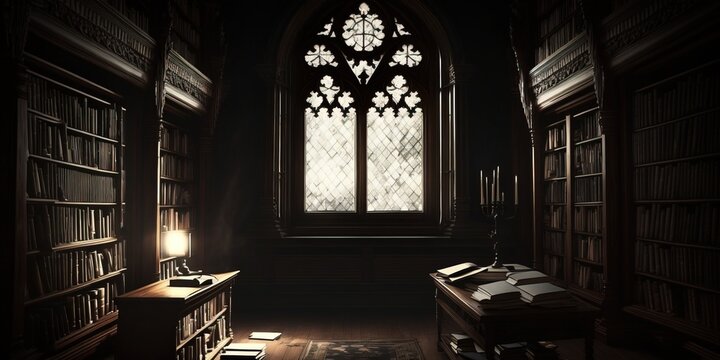
FAQ About Gothic Literature
Gothic Literature
2 years ago | gizem
How does the genre address the idea of the "sublime"?
The concept of the "sublime" plays a significant role in Gothic Literature, where it is used to evoke intense emotional and psychological responses in readers. The sublime is a complex aesthetic and philosophical concept that encompasses feelings of awe, terror, and wonder in the face of something vast, powerful, or overwhelming. In Gothic literature, the sublime is explored and conveyed through various means:
- Natural Landscapes: Gothic stories often feature descriptions of awe-inspiring and often menacing natural landscapes, such as stormy seas, desolate moors, dense forests, and towering mountains. These landscapes evoke the sublime by emphasizing their grandeur, vastness, and potential for danger.
- Architectural Grandeur: Gothic architecture, with its soaring cathedrals, intricate detailing, and imposing structures, is itself a manifestation of the sublime. The Gothic cathedrals of the Middle Ages, with their towering spires and intricate stained glass windows, are often referenced in Gothic literature.
- Supernatural and Uncanny: The supernatural and uncanny elements in Gothic literature can also evoke the sublime. Encounters with ghosts, vampires, or other supernatural entities create a sense of wonder mixed with fear, tapping into the sublime's emotional complexity.
- Psychological Effects: The sublime is not limited to external landscapes; it can also manifest within characters' psyches. Characters often grapple with intense emotions and inner turmoil, which can be described as experiences of the sublime.
- Exploration of the Unknown: The Gothic genre frequently delves into the unknown, whether it's the mysteries of the human mind, uncharted territories, or the supernatural realm. This exploration of the unknown generates a sense of wonder and curiosity associated with the sublime.
- Emotional Responses: The sublime elicits powerful emotional responses in characters and readers alike. Characters often experience a mix of fear, awe, and fascination when confronted with sublime phenomena, mirroring the reader's emotional engagement with the narrative.
- Awe and Terror: A central aspect of the sublime is the interplay between awe and terror. Characters may be simultaneously attracted to and repelled by the sublime, reflecting the genre's themes of fascination with the unknown and fear of the uncanny.
- Transcendence: In some Gothic narratives, encounters with the sublime lead to moments of transcendence or enlightenment. Characters may undergo profound personal growth or spiritual experiences as they grapple with the sublime.
- Moral and Ethical Dilemmas: The sublime can also be associated with moral and ethical dilemmas. Characters may be faced with choices that challenge their values or beliefs, and the overwhelming nature of these decisions can be described in terms of the sublime.
- Reflecting Society's Anxieties: The concept of the sublime reflects the anxieties and uncertainties of the era in which the Gothic work was written. It can symbolize the unknown, the uncontrollable, or the fear of the unfamiliar, which were often societal concerns during periods of rapid change.
